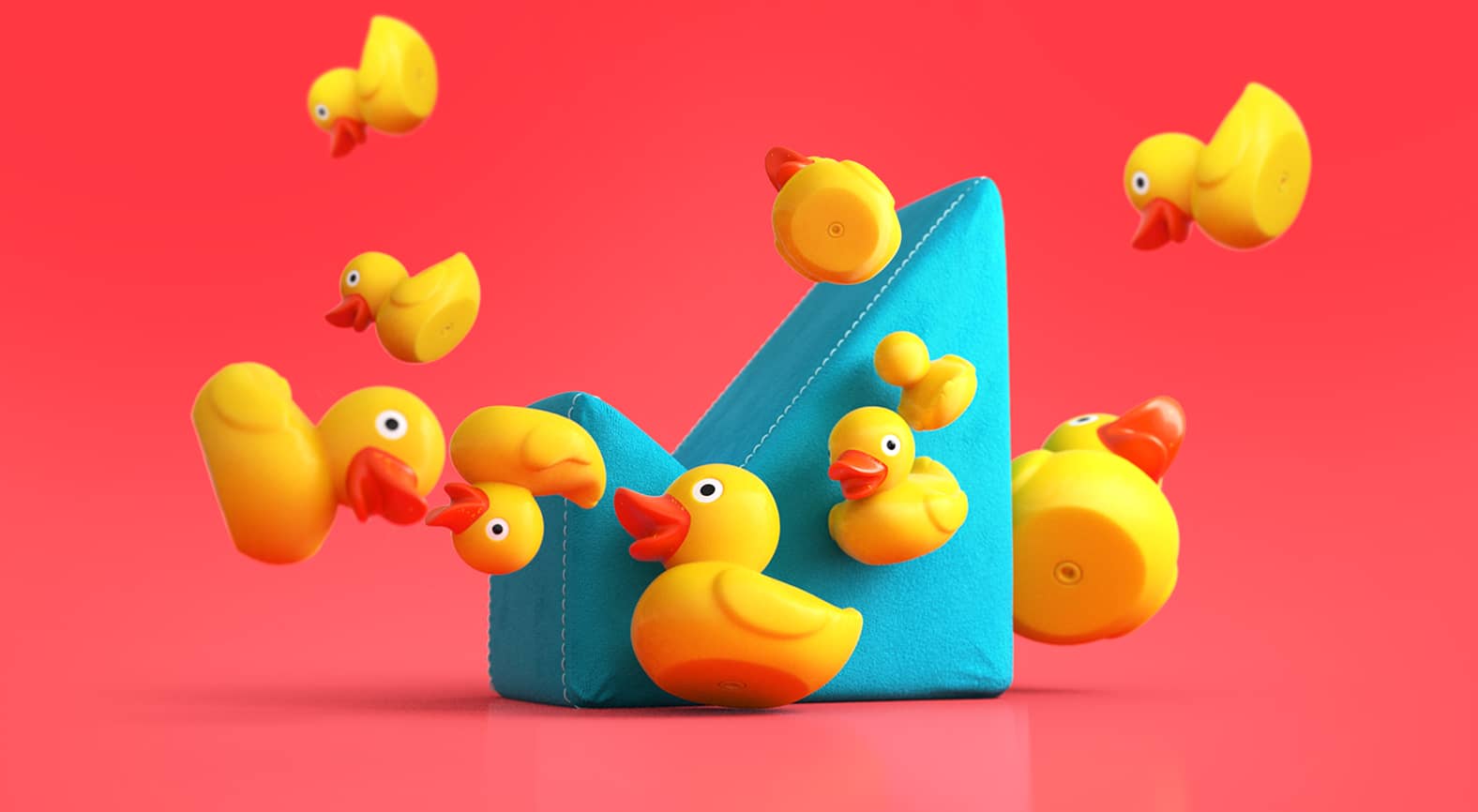Our COO Sarah Pettinger discusses wholeheartedness and wholeness in the workplace.
Already I think back on the first days of our remote working at Omobono as though they were another time, with that feeling of looking back on the haze of long childhood summers.
Apprehensive, in shock, unsure about what was happening, we set up at home and we scrambled onto our virtual channels. Keen for connection, desperate to rationalise what we were experiencing, we shared every article we found and leapt to comment and chat. Parents, suddenly plunged into new roles as teachers, entered a frenzy of posting links from all the amazing resources that surfaced overnight. We posed questions, played in Zoom quizzes and shared gifs in our eagerness to check we were all still there, and still ok.
The stark reality that we’re here, at home, for the long haul has well and truly struck. Although the last six months have definitely taken their toll on us, the initial frenzy has calmed, we survived the transition, and we found our pace. For our own mental health, we’ve realised how we need to be selective and opt in or out of the things in order to try and make this all manageable, whatever that means for each of us.
What’s remained, and what I see and hear in other companies big and small, is the essence of a shift towards wholeness at work. For us that’s about being all of who you are, rather than feeling it’s necessary to try and compartmentalise your life into different personas based on what’s ‘appropriate’ to the situation. It’s parents not needing to act as though they don’t have children, it’s people who live alone being able to say that they are missing connection, it’s finding a level of honesty, and vulnerability, about who you are and what you need.
We’ve been working on it at Omobono for well over a year and it’s captured within the company success statement we wrote in 2019.
Success at Omobono is to build a company which is renowned for being a fantastic place to work, where everyone brings their wholehearted selves to building great relationships with our clients, delivering outstanding work and a commercially strong performance.
That wholeheartedness is a sincerity and commitment to ourselves, our team and to being a whole and vulnerable human being. Wholeness at work isn’t a magical antidote to everything we’re struggling with at the moment, but to me it seems pretty critical to people coping and businesses being successful.
It’s no happy accident that we put wholeness before the work we produce or commercial success. Not because we don’t care equally about those things, quite the opposite, but as we shifted our ways of working at Omobono it became our first and most important measure of our success as a company, because without wholeness, everything we else we hoped for would be far harder to achieve.
As we’ve seen people in their own spaces, with the interruptions (often comical) of life, we’ve learnt more about each other, understood each other differently and connected in a more caring way. We’ve been able to talk, acknowledge how heavy life can feel at the moment and ask for help. Through lockdown people have shared their fears and feelings; in the early days our team talked about fear of redundancy, feeling overwhelmed by the news, parents talked about the pressure of their multiple roles, those living alone talked about trying to find balance and connection in their lives, and we all talked about the struggle to know when to close the laptop at night. More recently our fears and feelings have been about the endless rollercoaster of emotions and how heavy and hard it can feel one day in contrast to feeling it’s all manageable the next, or missing the energy of being with people in an office, and feeling tired and burnout.
We believe nurturing a culture of wholeness is good for our people, and it makes business sense too; when we see the whole person and we understand more and we’re more committed. At Omobono that’s translated into loyalty, retention and better collaboration. It’s ultimately allowing us to produce better work and I believe our business is thriving by all measures, even though it still feels really hard at the moment.
Since we started our work to shift how we operate as a company in 2019, we’ve consistently seen how people embrace and value the invitation to be their whole self at work. So it’s been fascinating, and affirming, to see other companies, including huge global corporates, realise and recognise that we all want connection; to understand the people we’re working with, who lead us, and with whom we spend significant amounts of time with.
Can wholeness at work be the positive legacy of this extraordinary period?
This shift has happened because we’ve been forced by the practical and emotional challenges of living through a global pandemic to put down our armour. The physical armour of dress codes and office status symbols is replaced by informality and spare bedrooms (which leaves me wondering if anyone is still donning suit and tie to go and work in their spare room). The emotional armour of keeping work and home separate, of gripping to the idea of ‘the person who I am meant to be at work’, has been replaced by the person I really am, with all the distractions, worries fears and feelings of life.
We can choose whether we want to use armour to try and protect ourselves from what’s happening or put it down and be honest about what’s happening. As I write this my kids are home from school, coughing away and awaiting the results of covid tests. I have a choice; to try and pretend that my kids aren’t home from school today and that everything is fine, or to talk about it with colleagues and ask them for what I need – whether that’s to laugh or despair about the madness of the situation or for flexibility whilst I try and juggle best I can. I choose to ask for what I need, and instead of then spinning stories in my head of colleagues who might think I’m not really working, or who’ll question my commitment and ability to do my job, I take a deep breath and I try and manage that emotion. I check that I know what people actually need from me so that I can manage and meet those commitments, talk clearly about the boundaries I need to set for the day, and update my Teams status to be clear that I’m here, but that I need a bit of flex.
I don’t doubt that some people have certainly worn worries and fears as armour, but in my experience, people have mostly talked, connected and shared. They have made the shift to wholeness.
Making everything we’ve felt in this moment of time part of culture at work in the years to come
I feel confident that wholeness is now part of our culture at Omobono in a way that will endure. But even for us that process has accelerated in covid times, especially in our relationships with clients.
When we start client meetings we do so with more than a ‘how are you?’ before briskly moving on to talk about work. We have gained insight into clients that we’ve never had; we see their homes, their families, we share the same pressures and struggles. So, we talk as people about how things really are. Our clients tell us when they are hiding from the kids, they talk about what’s happening with their families, how lockdown life has and is affecting them.
Whatever our situation, working at home has it’s challenges – lack of space, flatmates, family commitments. I see how, as a working mother, I still held on to the idea that I needed to contain my family life away from work. Now my kids, intrigued by the window into my working life, have to be a part of who I am at work (though it’s led to some entertaining conversations about what it is I actually do). They make appearances in the background of calls and I juggle caring for them with working. It’s required openness with colleagues about my situation and availability. But I’m still working and I’m still getting things done. Things I would never have even imagined suddenly became possible.
For the shift to be real and long term it takes more than practical decisions about how we’ll use our office spaces and whether remote working will be part of the long-term future. The real future of work doesn’t lie in re-thinking how we use our offices, it lies in retaining that wholeness as we return to our offices. Whether we’re at home or in an office in the future, we need to learn new skills for work – vulnerability, honesty, openness. We need to nurture trust and change our behaviours.
At Omobono, thanks to our brilliant guide Mack Fogelson, we call those behaviours ‘ways of being’. They are our inner work, the leadership principles and practices we use, how we are in relationship to ourselves and each other and how we lead and work together. We have been presented with an opportunity to fundamentally change our ways of being at work, but the ways we knew are ingrained. Even before we entered the world of work we had understandings of that world from our parents, our teachers, films, books and television. We have so many deeply set behaviours that guide how we lead, how we behave at work and how we respond in the workplace – these are slow and hard to change.
I know from practicing ways of being over the last year just how hard it is. When you think you might have got one thing sussed another emerges, when you consider why you behave in one way you unravel something deeply uncomfortable about our life. You get it wrong all the time and you have to stand up and try again.
If leaders are excited by the changes they see in their companies then they will need to do more than just learn new ways of using office space. They will need to learn new ways of leading, communicating and being. What we looked for from work was changing before covid. Just as there are now an avalanche of articles about the future of offices, there were before an avalanche of articles about millennials and their expectations of work. During lockdown we’ve faced peak emotional exhaustion, we have added heavily to our mental load, but we’ve also experienced the flexibility, we’ve tasted the trust and we’ve felt the connection. With our colleagues we’ve faced the feelings of fear and uncertainty with courage and resilience.
We have already made the shift towards wholeness. It’s those shifts that, I believe, that will really make for a better workplace and a positive legacy from this global crisis. If you want to do something about it then I’m happy to share more of our journey.





